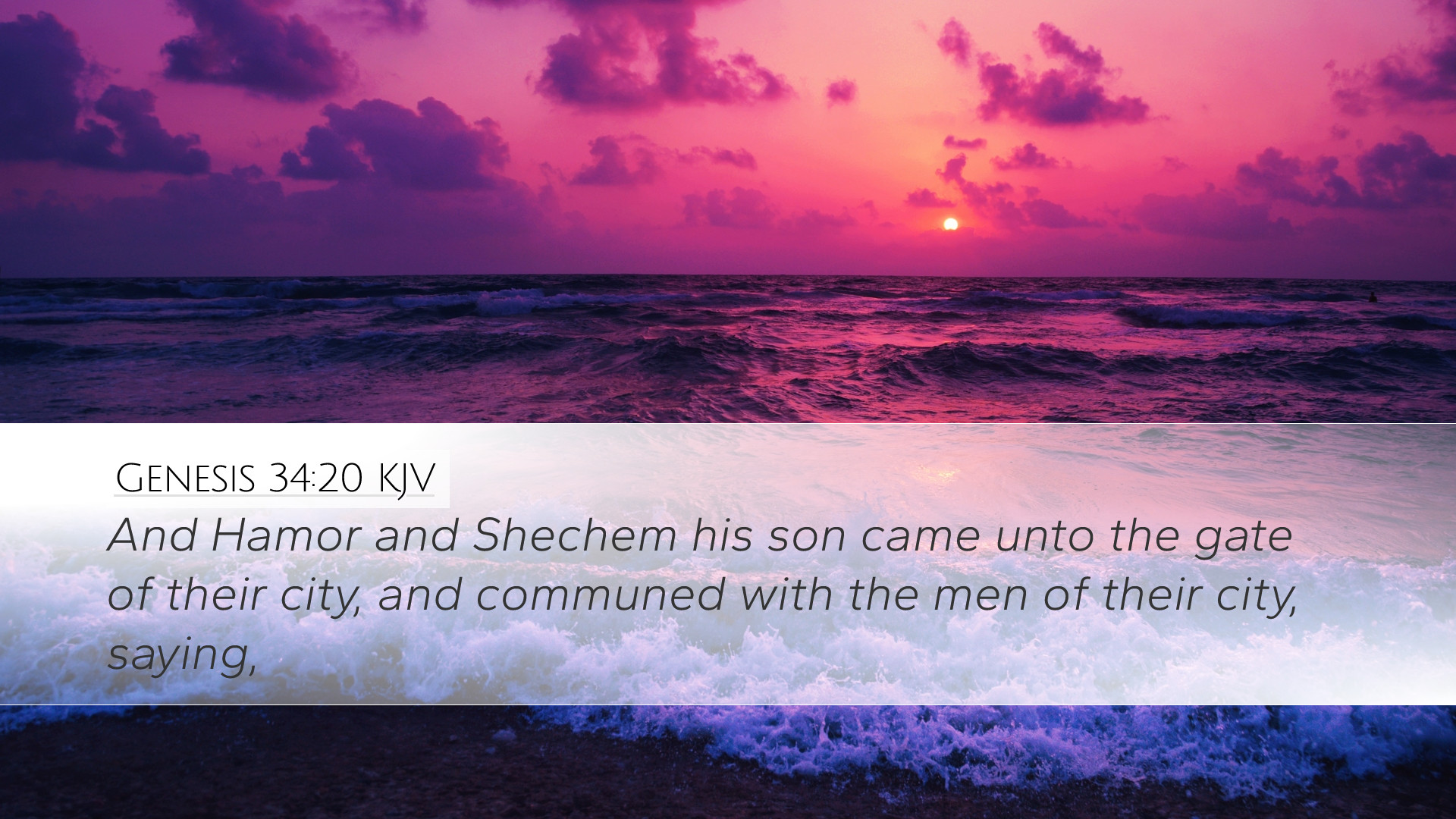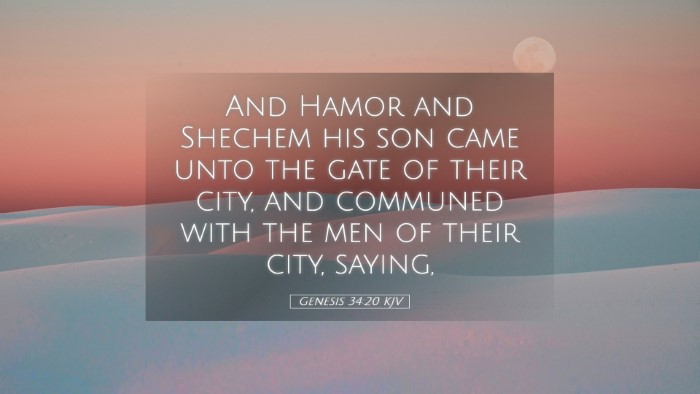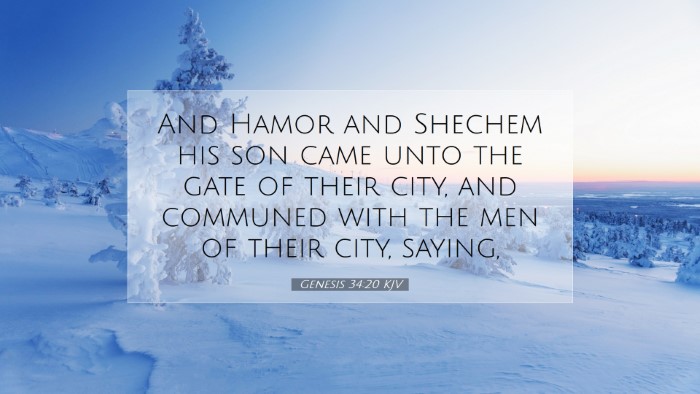Commentary on Genesis 34:20
Verse Context: Genesis 34:20 states, “And they came unto Hamor their father, and said, These men are peaceable with us; therefore let them dwell in the land, and trade therein; for the land, behold, it is large enough for them: let us take their daughters to us for wives, and let us give them our daughters.”
Understanding the Narrative
This verse follows the tragic account of the defilement of Dinah, Jacob's daughter, by Shechem the son of Hamor the Hivite. Following the incident, the narrative provides insight into the way the sons of Jacob reacted to this transgression. Their response highlights the cultural dynamics at play, revealing the tension between the Israelites and the inhabitants of the land.
Commentary Insights
Matthew Henry's Commentary
Matthew Henry points out that the statement made by Hamor illustrates a common approach where intermarriage was seen as a means of political and social alliance. Henry emphasizes the peaceable nature attributed to the men of Shechem, suggesting a facade of peace that might hide underlying tensions and the looming desire for vengeance from Jacob’s sons. The call for intermarriage here serves as a deeper commentary on the integration and the risks involved when God’s chosen people compromise with the surrounding nations.
Albert Barnes' Commentary
According to Albert Barnes, this proposal indicates a moment of diplomacy where the Shechemites seek to pacify Jacob's family after the incident. Barnes stresses the importance of understanding the sociocultural implications behind such matrimonial alliances during that period. He explains how these dealings were often rooted in a desire for coexistence and mutual benefit but were also fraught with the dangers of idolatry and moral decay. He notes that the term 'peaceable' suggests a contrast to the violent acts committed by the Shechemites, thereby portraying the duality of their character.
Adam Clarke's Commentary
Adam Clarke expands on the significance of the land being "large enough" for both communities, acting as an invitation for cohabitation. He highlights how the land becomes a backdrop for the unfolding drama between Jacob's family and the local tribes. Clarke emphasizes that the acquiescence of Jacob's sons to consider such marriages illustrates both opportunism and a strategic approach to strengthen their position materially, albeit at the risk of divine disfavor that ultimately arises from such entanglements.
Theological Implications
The verse invites several theological reflections relevant to contemporary readers, particularly those in pastoral contexts:
- The Dangers of Compromise: The proposal to marry into Shechemite families represents a temptation to blend cultures and faiths, which is a recurrent theme in the Scriptures warning against the dangers of such alliances.
- God’s Sovereignty Amidst Human Choices: Even amidst the actions of Jacob's sons, God's overarching plans are at work, demonstrating that human failings do not thwart divine purposes.
- The Nature of Peace: This account challenges the definition of peace, highlighting how political peace can disguise underlying tension and conflict, urging believers to seek true reconciliation built on godly principles.
Applications for Pastors and Theologians
This text serves several functions for pastoral application:
- Preaching on Interpersonal Relationships: The complexities of relationships in light of God's call can be a focal point for sermons, encouraging congregations to seek God’s guidance in their own interactions.
- Teaching on Holiness: Pastors can address the implications of mingling with secular cultures that lead to moral compromises, urging a return to biblical standards.
- Counseling on Conflict Resolution: The narrative can be referenced in discussions about conflict and cultural interactions, promoting a peace rooted in righteousness.
Conclusion
Genesis 34:20 encapsulates a significant moment in Israel's early history that is rich with cultural and theological insight. While the sons of Jacob approached Hamor with a desire for peace, underlying tensions and the danger of compromise reflect a warning for contemporary believers. As we study this verse and the related commentaries, it is essential to grapple with the principles of holiness, the nature of true peace, and the repercussions of our decisions in light of God’s covenant faithfulness.


